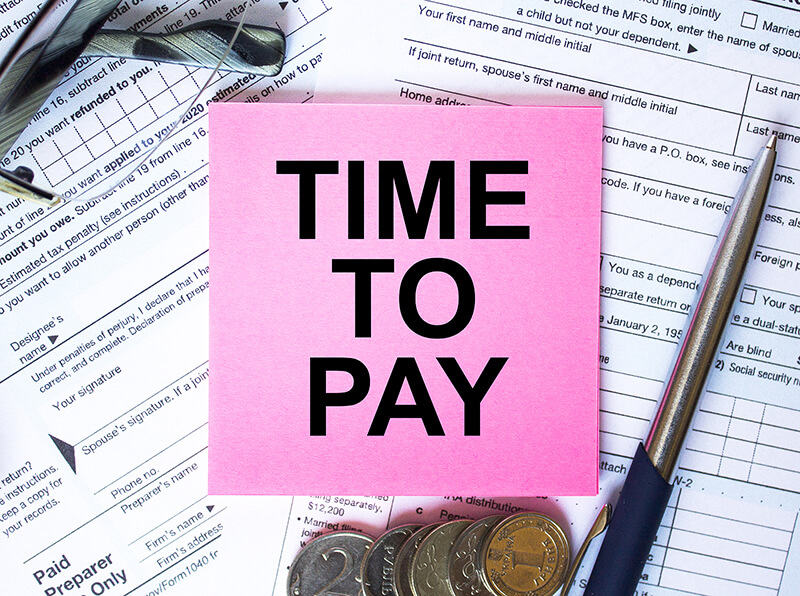MyExpatTaxe CEO will owe taxes this year, Why You Might Too
February 2, 2022 | Family Tax Support, Paying Taxes | 4 minute read
Expat Tax Blog. Tax Tips for US Americans abroad.
 All blogs are verified by IRS Enrolled Agents and CPAs
All blogs are verified by IRS Enrolled Agents and CPAs

Do expats pay US taxes?
Expats usually don’t owe US taxes. We’ve probably said it 100 times. Expats need to file their taxes, but they typically don’t owe US taxes. This year however is different. Many American expats will pay US taxes in 2022 for the first time.
How did it come to be that our very own CEO expat will pay taxes this year?
A little background
Originally from California, Nathalie Goldstein founded MyExpatTaxes in 2018 while living abroad in Vienna, Austria. She was frustrated with the options currently on the market for expats to file their US taxes. They were either costly or didn’t address the specific needs of expats. She took matters into her own hands and created the solution you know today.
Nathalie is a certified Enrolled Agent (the highest credentials from the IRS themselves) and a member of the Forbes Finance Council. Since founding MyExpatTaxes, she has helped thousands of American expats through simplifying the US Expat Tax process.
So I ask again, how can our well-qualified CEO wind up owing US Taxes? Especially when expats usually don’t need to pay?
Our CEO Owes US taxes BECAUSE she’s an expat
The reason she owes taxes comes down to the very fact that she’s an expat. Yes, you read that right. Suppose she wasn’t an expat; she actually wouldn’t owe the taxes she owes. If you’re guessing by now that it’s not that simple, you’re right.
It comes down to tax credits.
The Additional Child Tax Credit
Last year, as part of The American Rescue Plan, The Additional Child Tax Credit was increased. In the past, parents could only receive up to $1,400 per child as a tax refund. The refund is commonly referred to as the Additional Child Tax Credit and was a portion of the Child Tax Credit. This year it was decided parents would receive the full credit as a refund.
A second thing parents saw with the changes is the increase in total credit available per child. This year parents and guardians can claim up to $3,600 per child under six and up to $3,000 for every child under 18.
Not only has the total sum increased, but the age of eligible dependents has increased as well. While the age of qualifying dependents is now 18, it was previously limited to 17 in past years.
Advanced payments
The offer of additional tax credits is always appreciated, but they typically wouldn’t come into play until the following year. Parents would first see the refunds when they file their 2021 taxes (in 2022).
The American Rescue Plan aims to help American families who need help immediately. Not next year. To solve the timing issue, they added something special.
Parents would begin receiving direct payments as early as July 2021. The payments are an “advance” on the refund they would receive in 2022. Altogether, parents received up to 50% of their tax credit in monthly payments. The payments went through December 2021.
How do tax refunds turn into expats paying US taxes?
One minute we’re talking about a significant increase in tax refunds for parents. Then, we’re looking at tax debt. What is happening here?
Nathalie’s situation comes down to that very tax credit and those advanced payments.
The expat exclusion
In past years, expats have been eligible for the same Child Tax Credits as their friends and family living back home in the states.
This year there is a fine print specifically in the case of Americans abroad. If you spent more than half of 2021 living OUTSIDE of the United States, you wouldn’t be eligible for the total refund amount, rather only the normal amount of $1,400.
How expats benefit from the Additional Child Tax Credit
The benefits expats will see from the Additional Child Tax Credit come down to three things:
- For expats who owe taxes, parents can claim the full credit they are due as a tax-deductible – including the new higher amount.
- Anyone who lived outside the US for more than half of 2021 is eligible for a refund of up $1,400 per child, not $3,600 – $3,000.
- Everyone living in the US and abroad will benefit from the age increase from 17 to 18 for dependents.
Expat Tax Tip: See how much you could be eligible to receive using our Child Tax Credit Calculator for Expats.
Why Nathalie and other expats will pay US taxes in 2022
Nathalie experienced the joy of welcoming her first child in 2020.
As a responsible tax professional, she made sure to register them for citizenship and a social security number right away. Knowing that to claim any amount of Child Tax Credit, they would need their SSN by December 31st, 2021. Keep in mind, a US Social Security Number is not what will require your US children one day to file US taxes, it is the US Citizenship itself. Therefore, if you are going to give your children US Citizenship, you might as well get them a US SSN right away so you can claim your eligible tax credits now and save them the hassle of getting their US SSN later on in life.
When she registered them and claimed them on her 2020 tax return (filed in October 2021 shortly after their SSN was issued), it triggered the Advanced Payments to deposit into her account.
The twist
As an American Abroad, Nathalie knows she will only be eligible to receive a maximum tax refund of $1,400 for her young child.
The IRS based her payments on the information they had on her previous tax returns form 1040. For Nathalie, it had made sense in the past to keep using her US address for communication purposes. So when she began receiving Advanced Child Tax Credit payments, it was no surprise, even if ultimately she would not be eligible for the full amount they sent.
As mentioned, Nathalie, with one child, is eligible for a maximum refund of $1,400. Instead, they sent her two payments of $900 each. In total, Nathalie received $1,800, 50% of the $3,600 amount she would otherwise be eligible for if she did have a main home in the US for more than half of 2021.
Paying it back
When Nathalie files her 2021 tax return, she will correct the discrepancy. She will also need to pay back the $400 overpayment.
If you received more from the Additional Child Tax credit than you qualify for, It’s not a big deal. It was just an estimate. The excess payments are not free money. You will have to pay it back. The $1,400 amount per child is free money indeed though!
File by April 18th if you owe expat taxes
For most expats, the traditional filing deadline is June 15th. For most Americans Abroad who do not end up paying US taxes, it’s not a problem to wait to file until then.
However, if you are like Nathalie and received over-estimated advanced payments or owe for some other reason, you need to file by April 18th. If you aren’t 100% certain if you will owe US taxes this year, we highly recommend filing early to be safe!
Child tax credit calculation as expats
If you’re not sure you received the correct payments, you’ll want to look out for Letter 6494. Which is a summary of the credits you received. Be careful, though! If you, like Nathalie, filed with an address other than where you live, the letter could be sent to that address.
You can also use our exclusive Child Tax Credit Calculator. It will give you an accurate breakdown of how much of the Additional Child Tax Credit you can expect to receive or pay back when you file your taxes! It’s the only calculator that considers your residency, making it the only Child Tax Credit Calculator for US Expats.
Want more info on how to save with US child tax credits? We’ve got a full breakdown of all the 2022 Child Tax Credits for parents.












